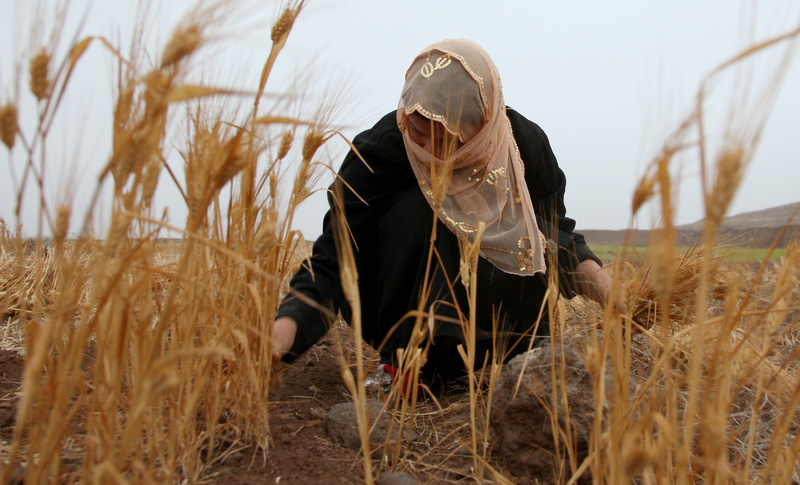 While many Arab countries are struggling to adapt to the economic implications of the Arab Spring, another crisis now looms on the horizon: the rising cost of food. Taking the necessary steps to tackle this crisis is in the interest of not only the Arab Spring states, but the entire region — including the wealthy Gulf emirates. After all, nearly every country in the Arab world is facing a lack of food security.
While many Arab countries are struggling to adapt to the economic implications of the Arab Spring, another crisis now looms on the horizon: the rising cost of food. Taking the necessary steps to tackle this crisis is in the interest of not only the Arab Spring states, but the entire region — including the wealthy Gulf emirates. After all, nearly every country in the Arab world is facing a lack of food security.
Most Arab countries currently import approximately 60% to 80% of their foodstuffs. Speculation on global food markets in 2008 resulted in a regional crisis. Commodity prices skyrocketed and drove inflation to unprecedented levels. Many Arab countries took targeted action intended to reduce inflation. But these measures failed to address the root causes of the food crisis.
A glance at the data indicates just how serious the threat has become. The cost of the Arab world’s food imports is estimated to reach $115 billion by 2020. This estimate is based on a population growth rate of 3.5 percent over the next decade.
What makes the challenge even harder to overcome is the fact that the food crisis is likely to get worse before it gets better. There are several reasons for this, most importantly the global phenomenon of increasing desertification. In addition, conflicts over water resources are intensifying and the list of countries without food security continues to grow. And the expected rise in energy and production costs threatens the world with a tidal wave of price hikes.
These rising costs are likely to hit Arab states especially hard because of a number of underlying policy missteps. First, the agricultural sectors in most Arab countries have been severely neglected in recent decades, resulting in low levels of productivity. This spurred mass migration from agricultural regions to cities and suburbs, hence skilled workers have abandoned the sector and governments lost interest in allocating adequate financial resources to enhance the sector’s productivity, leading to a lack of agricultural resources and skilled labor.
Second, most Arab states have begun to subsidize foodstuffs, thus reducing the incentives to seek innovative solutions to the growing food security problem. But that cannot be sustained forever. The rise in global prices means higher budget deficits in most Arab countries. And, while the Gulf states are still running surpluses, the exorbitant cost of importing foodstuffs is nevertheless taking its toll.

